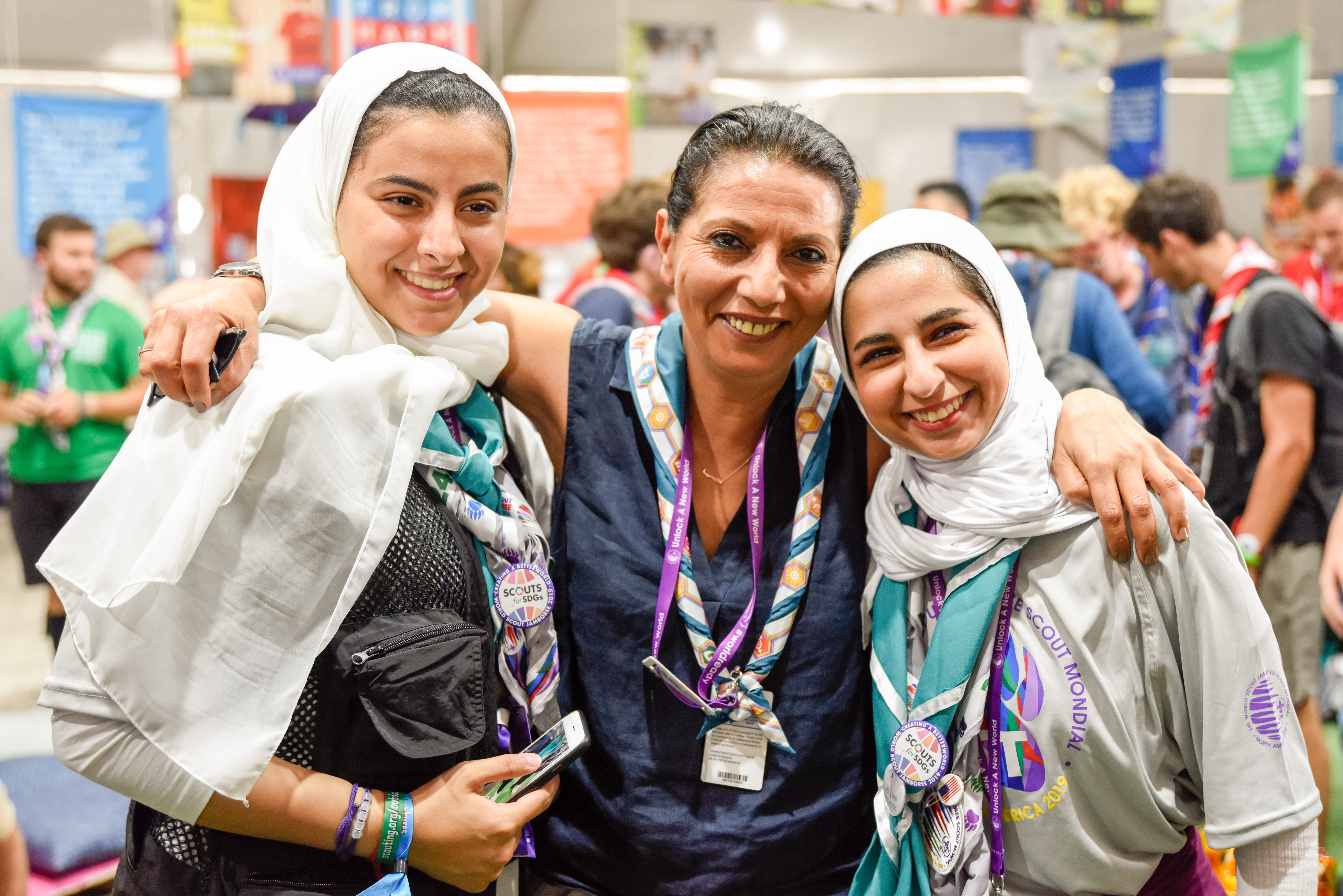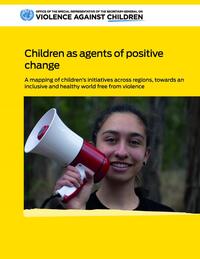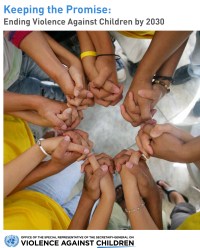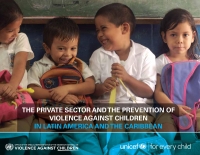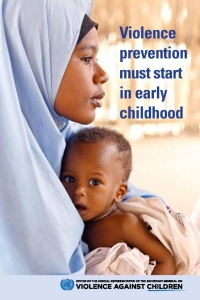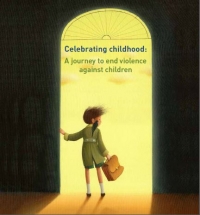United Nations Special Representative of the Secretary-General on Violence against Children (SRSGVAC)
Introduction
In 2002, the United Nations General Assembly following a recommendation of the Committee on the Rights of the Child Resolution requested the Secretary-General to conduct an in-depth study on the question of violence against children. The UN Secretary-General’s Study on Violence against Children was issued in 2006 and addressed violence against children in five settings: the family, schools, alternative care institutions and detention facilities, places where children work, and communities. The UN Study called for urgent action to prevent and respond to all forms of violence and presented a set of strategic recommendations.
The UN Study recommendations are anchored in the human rights normative foundation of the Convention on the Rights of the Child and its Optional Protocols and other international instruments on children’s rights.
To promote wide dissemination of the UN Study and ensure effective follow up to its recommendations, the UN Study also called for the appointment of a Special Representative of the Secretary-General on Violence against Children.
On 1 May, 2009, the Secretary-General announced the appointment of Marta Santos Pais, JD of Portugal as his Special Representative and she took up her position on 1 September, 2009.
On 1 July 2019, Dr. Najat Maala M’jid was appointed to the position following Ms Santos-Pais’ retirement.
Scope of the Mandate
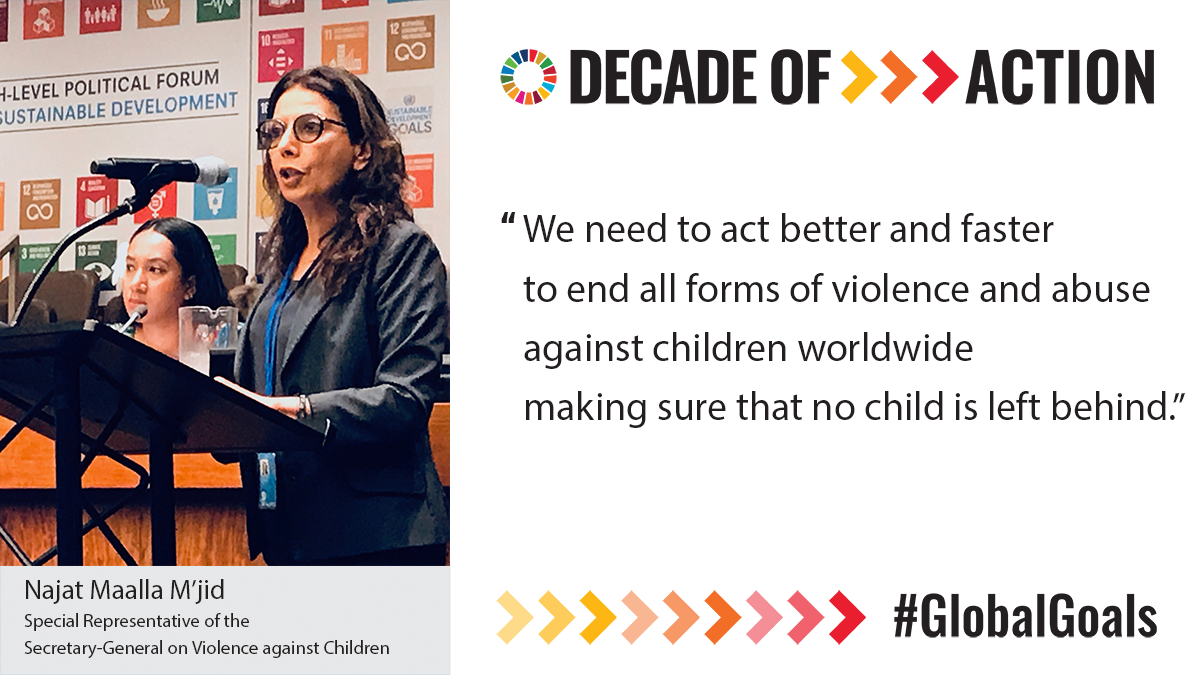
The Special Representative of the Secretary-General on Violence against Children is a global independent advocate for the prevention and elimination of all forms of violence against children. She acts as a bridge builder and a catalyst of actions in all regions, and across sectors and settings where violence against children may occur. She mobilizes action and political support to maintain momentum around this agenda and generate renewed concern at the harmful effects of violence on children; to promote behavioural and social change; and to achieve effective progress towards ending all forms of violence against children in all settings.
As the UN Study on Violence against Children highlighted, no violence against children is justifiable and all violence against children can be prevented.
Three key priority focus areas
The Special Representative has three key priority focus areas which are supporting efforts towards the implementation of the 2030 Agenda for Sustainable Development and achievements of the Sustainable Development Goals, especially SDG target 16.2 which aims to end all forms of violence against children:
- Policy: the development in each State of a national comprehensive strategy to prevent and respond to all forms of violence, mainstreamed in the national planning process, coordinated by a high level focal point with leading responsibilities in this area, supported by adequate human and financial resources to support implementation, and effectively evaluated;
- Legislation: the introduction of an explicit legal ban on all forms of violence against children in all settings; and
- Data collection: the promotion of a national system of data collection, analysis and dissemination, and a research agenda on violence against children.
Violence against children and the 2030 Agenda for Sustainable Development
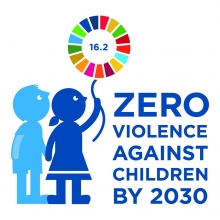 In September 2015, the 203 Agenda for Sustainable Development Agenda and 17 Sustainable Development Goals (SDGs) was unanimously adopted by the Member States of the United Nations. The 2030 Agenda includes for the first time a specific target (16.2) to end all forms of violence against children. Ending the abuse, neglect and exploitation of children is also mainstreamed across several other violence-related SDG targets.
In September 2015, the 203 Agenda for Sustainable Development Agenda and 17 Sustainable Development Goals (SDGs) was unanimously adopted by the Member States of the United Nations. The 2030 Agenda includes for the first time a specific target (16.2) to end all forms of violence against children. Ending the abuse, neglect and exploitation of children is also mainstreamed across several other violence-related SDG targets.
Having strongly advocated for the inclusion of ending violence against children in the 2030 Agenda, the priority of the Special Representative is now to help support global, regional and national efforts towards reaching Sustainable Development Goal, target 16.2 and make its vision of a world free from fear and from violence a reality for all the world’s children.
Early childhood development
Ending violence in children’s lives and investing in early childhood are first and foremost a question of the realization of children’s rights. Violence in early childhood is a stressful, painful experience for a child in the immediate term, with the further risk of mid and long-term consequences. Scientific evidence shows that a violence-free early childhood matters: the first 1,000 days of a child’s life are the foundation for a person’s whole future development. The optimal physical, intellectual and socio-emotional potential of children depends on receiving loving care and a nurturing environment from the very start.
Video (Eng) | Najat Maalla M’jid - Office of the UN Special Representative to the Secretary-General on Violence against Children (6:53)
Furthermore, scientific research shows that stress in early childhood - including exposure to violence - compromises children’s development, health and education, with long-term negative mental and physiological consequences. Through advances in neuroscience there is now a vastly increased understanding of how a child’s early brain development can be negatively impacted by exposure to violence. Violence can alter the developing brain’s structure which can have long term impact on a child’s language acquisition and cognitive functioning. This can result in social and emotional competency deficits and generate fear, anxiety, depression and the risk of self-harm and aggressive behaviour. Longitudinal studies show that children exposed to violence are more likely to be victims of violence later in life and become perpetrators themselves; use violence as adults against domestic partners and their own children; and be at increased risk of engaging in criminal behavior.
Violence often starts in early childhood but affects children of all ages. A recent UNICEF report ‘A Familiar Face’ found that shouting, yelling or screaming are common forms of discipline for one-year-olds; close to 300 million children aged between 2 and 4 years of age experience psychological aggression and/or physical punishment by their caregivers at home; and 176 million children under five years of age witness domestic violence.
These figures are deeply distressing. But that is not the whole story… in fact, the story of violence in early childhood does not have a happy ending. As underscored in our 2019 Annual Report of the Special Representative of the Secretary-General on Violence against Children, violence prevention must clearly start in early childhood! And by so doing, every child can develop to their full potential, free from fear and from violence.
The economic costs of violence against children
We must break this vicious and devastating cycle of violence - for the child, for the adult they become, and for society. Investing in early childhood is a human rights imperative. But in addition, it makes economic sense! Violence against children is estimated to cost the global economy over US$7 trillion a year. Lack of investment in early years may hold children back even before they reach school age, paving the way to a life of disadvantage. Such a poor start in life can lead to a loss of about a quarter of average adult income per year. And countries may forfeit as much as two times their expenditure on GDP on health and education.
For more information, see the Special Representative’s Viewpoint, “The economic costs of violence against children”.
Contributor: Dr Najat Maalla M’jid serves as member of the ECPC Executive Committee. She is Special Representative of the United Nations Secretary-General on Violence against Children.
This publication is produced by UNICEF Regional Director for Latin America and the Caribbean: Marita Perceval; and the Special Representative of the Secretary-General on Violence Against Children (SRSGVAC): Marta Santos Pais.
JOIN THE CONVERSATION
For breaking news and to stay connected, follow us on social media. Sign up to get our E-News delivered straight to your inbox.


